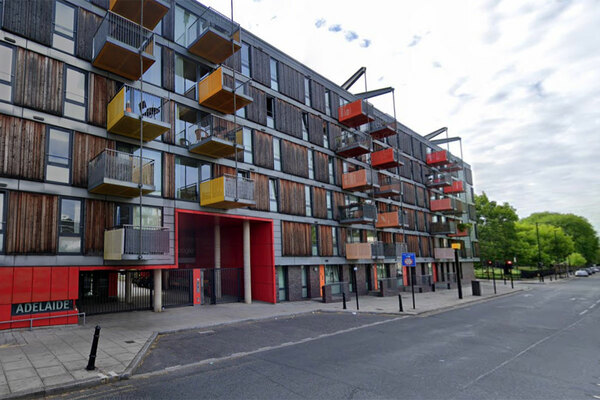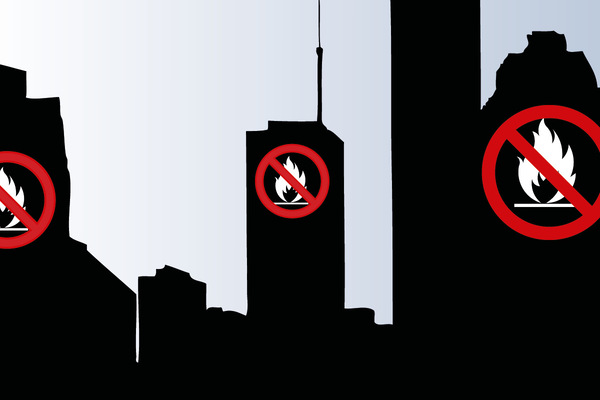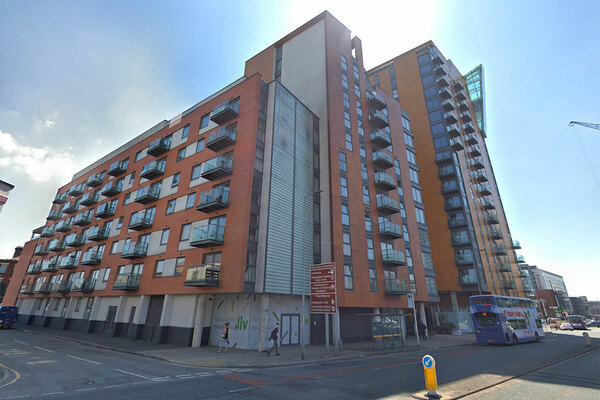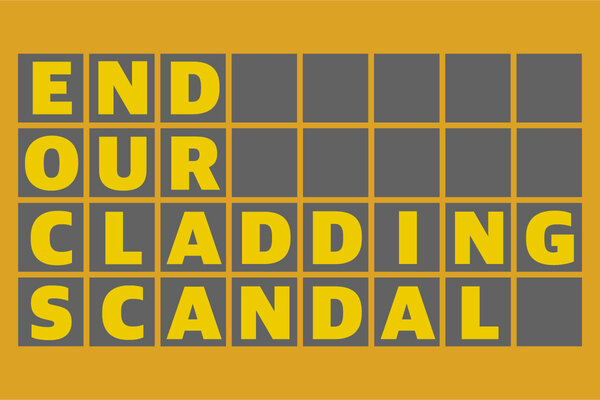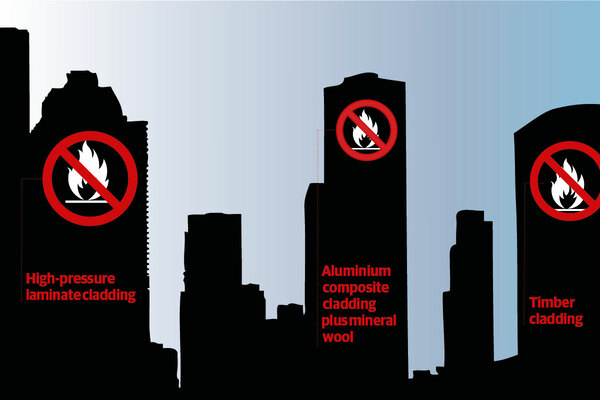Fears cladding scandal could grow as mortgages refused on buildings under 18m
Fears have been raised that the cladding scandal currently preventing thousands of leaseholders from selling their flats could be set to grow, after it emerged that some banks are now refusing to give mortgages on buildings under 18m.
Inside Housing has spoken to one leaseholder living in a block of just 15m who saw the sale of his Hackney flat fall through after housing secretary Robert Jenrick’s fire safety reforms last month, which called on building owners to assess and manage the risk of external fire spread regardless of height.
Chad Cribbins and his family of five live in a two-bedroom flat in the Adelaide Wharf building in Hackney.
Last month the family decided to put their home up for sale and after receiving several offers they agreed a deal and put in their own offer on a bigger apartment nearby.
However, the sale of their home fell through after mortgage lenders were unwilling to lend to potential buyers until they received certification confirming that the building’s cladding met government regulations.
This came despite a neighbour of Mr Cribbins successfully selling their flat in December last year, just weeks before Mr Jenrick’s announcement.
Last month Mr Jenrick announced a raft of fire safety changes, including a consolidation of the fire safety advice into one advice note, which states that “the need [for building owners] to assess and manage the risk of external fire spread applies to buildings of any height”.
When speaking in parliament at the time, Mr Jenrick said “there hadn’t been enough focus amongst building owners on buildings below 18 metres” and that “more action is needed to review these risks”.
Thousands of leaseholders living in high-rise blocks over 18m are currently “mortgage prisoners”, unable to sell their homes or obtain mortgages because of regulations around combustible materials. Labour estimates that up to 600,000 leaseholders could be affected.
The news of Mr Cribbins’ situation has indicated that the new guidance could drag more people into the cladding scandal, with leaseholders of buildings of 18m and higher unable to sell or facing thousands of pounds in remediation and waking watch costs.
Inside Housing has been made aware of other buildings under 18m facing similar problems.
There are currently around 12,000 blocks across the country standing at 18m and higher. And it is estimated that there are 100,000 medium-rise buildings.
Mr Cribbins said that while his family loves their current flat, it is not big enough for them, and the inability to sell is “dashing his family’s hopes and dreams”.
He added that the new regulation has left them in “financial jeopardy” and called for the government to step in and help.
A Ministry of Housing, Communities and Local Government spokesperson said it was unacceptable that residents of buildings below 18m have found themselves stuck in limbo, unable to sell their homes.
They added: “Building owners have legal requirements to make sure that all residential buildings – regardless of height – are safe, and any risks should be fixed as a matter of urgency.”
The block’s managing agent, Rendall & Rittner, has told Mr Cribbins that it could still take six months before the external wall systems are checked. Mr Cribbins could also be facing further delays and increased costs if inspections reveal there are issues with the building and that remediation is needed.
In a statement to Inside Housing, Rendall & Rittner, which is one of the country’s largest managing agents, said the current issues around combustible materials are a UK-wide problem which needs government intervention.
The agent, which has around 600 blocks to check across the country, said there is currently a very limited number of experts qualified to carry out checks and many of these are unable to obtain necessary professional indemnity insurance for the work.
Building inspectors and fire engineers can only operate if they secure professional indemnity insurance, but there has been a major crisis in the sector since Grenfell with an increasing number of insurance providers pulling out of the sector.
Rendall & Rittner’s statement added: “All of this has now been compounded by recent consolidated advice from government, which appears to put all buildings regardless of height in scope.
“We are deeply concerned that leaseholders are going to be footing significant bills just to check that their buildings are safe.
“The net effect of this will be that it will be impossible for the industry to focus on those buildings which are most at risk, as well as potentially rendering unmortgageable the vast majority of apartment housing stock across the UK.”
Inside Housing understands that Halifax is not currently offering new mortgages on high-rise blocks that have not been assessed by a qualified professional in accordance with the Royal Institution of Chartered Surveyors, UK Finance and Building Societies Association.
Nationwide said its concerns relate to how a building has been built rather than the size, and giving a mortgage depends on what fire or safety issues have been found by a surveyor.
The building society said it would require sight of documentation from a suitably qualified person that confirms a building is safe and secure.
End Our Cladding Scandal: campaign aims
- Government provides a fund to cover the cost of cladding removal and remedial works on private blocks
- A firm timescale is set out of no more than two years for the work to be carried out
- Residents are reimbursed for the interim fire safety costs incurred, and funding is to be provided for necessary internal fire safety measures identified by a competent fire risk assessor
